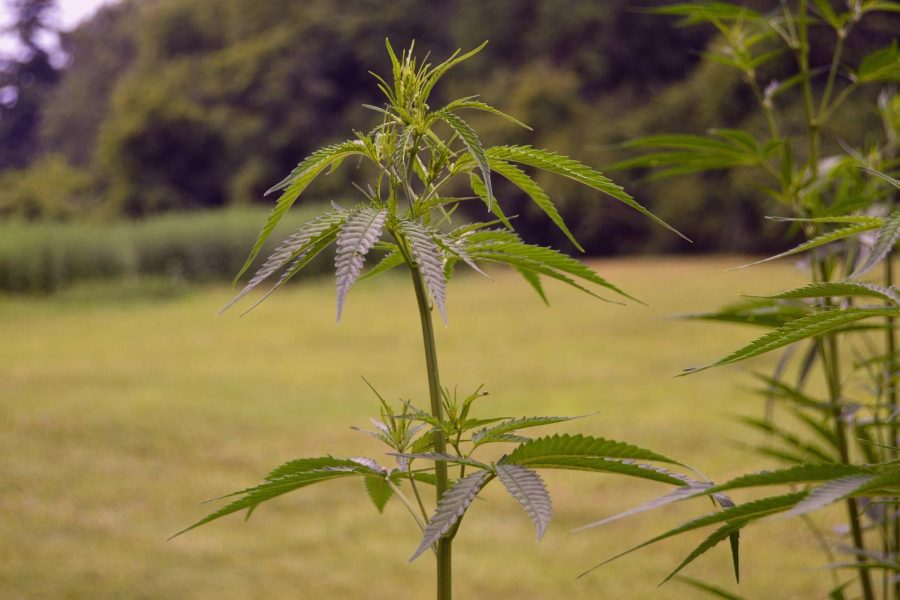Bisexual individuals more likely to use cannabis for coping and expansion motives
Study focused on LGBTQ+ populations to help serve their health needs.
The study only looked at cisgender participants and the majority of the study participants were female.
February 2, 2023
A study headed by WSU and other researchers found that bisexuals are more likely to use cannabis and use it more frequently.
Reasons found that could explain why bisexuals use cannabis more frequently are to cope with mental health problems and for expansion reasons, said Kyle Schofield, lead author of the study and psychology doctoral student at WSU. Expansion reasons are the “stereotypical cannabis reasons,” Schofield said.
“What the [expansion] subscale is intended to measure is using cannabis for those kinds of stereotypical cannabis reasons. So getting to know yourself better, feeling more creative,” he said.
Other expansion reasons included being more original, understanding things differently, expanding awareness and being more open to experiences, he said. Those in the bisexual group reported that they used cannabis for these expansion reasons.
It is important to note that the bisexual group did not self-label with the term “bisexual,” Schofield said. A Kinsey scale was used to classify sexual orientation.
Those who did not report as exclusively homosexual or exclusively heterosexual were a part of the group called the bisexual group in the study. The bisexual group was those who reported being mostly heterosexual, equally heterosexual and homosexual or mostly homosexual, he said.
The study only looked at cisgender participants and the majority of the study participants were female. Schofield said that he wanted to study transgender participants, but that there was not enough data to make meaningful scientific comparisons with them because of the small number of participants.
Coping reasons for marijuana research in the study can be understood using the minority stress model, he said.
“This is a model that we use in queer research to understand why there are higher levels of mental health symptoms among sexual and gender minorities. And the answer is stress. So, LGBTQ people tend to face higher levels of stress from lots of different sources,” Schofield said. “So like being discriminated against in public spaces or in institutions like hospitals or universities.”
That extra amount of stress leads to more difficulties with mental health and substance use can be a way to cope with those difficulties, he said. Although the study found that there was a correlation between bisexuals using cannabis for expansion and mental health coping reasons, the study cannot prove causation.
The study was cross-sectional, so it cannot prove that mental health problems directly lead to higher levels of cannabis use among bisexuals, it can only show a correlation and suggest that coping and expansion reasons are why bisexuals use cannabis, he said.
Correlation is when two things go together and happen at the same time, like temperature rising when ice cream consumption rises, Schofield said. Causation is being able to prove, after controlling for all other variables, that the temperature rising is the reason for the increased ice cream consumption.
Young adults both within and outside of the bisexual community may struggle with their cannabis usage. For those that do, there are resources available in Whitman County.
Chris Skidmore, deputy director at Whitman County Public Health, said there is a resource guide available online that was recently developed to help adults with substance and other issues in the Palouse.
The guide has over 250 different resources in the Palouse, both within Whitman County and Latah County, that are available for issues including substance abuse, Skidmore said. If someone is concerned about their cannabis usage, they should reach out to a professional.
“I think they would probably want to reach out to a behavioral health specialist to have that conversation. And the specialist would let them know where the red line in the sand is. Or they could also reach out to their primary care provider and have that discussion,” Skidmore said.
While legalization has helped to reduce the stigma of cannabis usage, there is still a stigma, he said.
There is a lack of qualified mental health providers in Whitman County, which is a nationwide problem, Skidmore said. Before the pandemic, there was already a limited number of professionals, but the pandemic created a greater need for services and resulted in some providers leaving the field due to burnout.
Counseling can be useful for “just about anybody,” Skidmore said. Everyone has mental and behavioral issues at some point in their lives. Palouse River Counseling, the state Department of Health and the Whitman County Public Health website provide some trusted sources of information for harm reduction strategies.
It is important to study LGBTQ populations because there is not nearly enough health research as is needed to address their health concerns and because the LGBTQ population is changing, he said.










